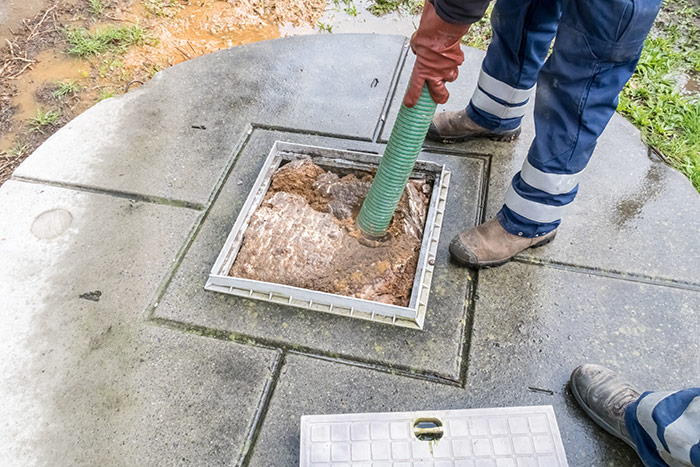
How can I prevent a septic system failure?
- Regular maintenance is the best method to prevent a septic system failure. Septic maintenance includes inspecting the entire system every 1 to 3 years and pumping the tank every 3 to 5 years. The frequency for pumping the septic tank depends on the tank size, number of people in the household, the water habits and use, if a garbage disposal is used, and the amount of solids accumulated in the tank. A rule of thumb is to pump the tank when the solids are two-thirds of the volume in the tank. Routine maintenance is the responsibility of the home or property owner. If you rent a home, you have responsibility for the proper use and operation of the system.
- In general, you can avoid a septic system failure by:
- Inspecting your system every 1 to 3 years
- Pumping the tank every 3 to 5 years or as needed
- Avoiding excess water use (e.g. spreading out laundry use over the week)
- Flushing only human waste and toilet paper down the toilet.
What are common signs of a failing septic system?
- Water and sewage from toilets, drains, and sinks backing up into the home’s plumbing
- Bathtubs, showers, and sinks draining very slowly
- Gurgling sounds in the plumbing system
- Standing water or damp spots near or over the septic tank or drain field
- Sewage odors around the septic tank or drainfield
- Bright green, spongy lush grass over the septic tank or drainfield, even during dry weather
- Straight pipe discharging untreated wastewater to the ground surface
- Algae blooms in nearby lakes or water bodies
- High levels of nitrates or coliform bacteria in surface waters or drinking water wells
If I smell a foul odor coming from my septic system, does that mean my system is failing?
- There may be several reasons for the smell, which can occur inside or outside your home. If you notice an odor, it may be coming from a roof vent or other vent pipe that allows the system pressure to equalize. This is a normal part of your system. Sometimes these vents can become obstructed and clogged (from leaves, debris, etc.) or the vent pipe can freeze during prolonged cold spells. These situations could cause an odor inside or outside of your home. Another possibility is a downdraft (changes to wind pattern) or other location-specific conditions, which can create an odor inside or outside your home. In these cases, the vent may need to be cleaned or raised. There are charcoal filters available for roof vents that may also alleviate the odors.
- If your drainfield is not working properly, that could be another reason you smell an odor inside your home or around the septic system. Soft, wet, or spongy soil (especially when there have been no significant rainfall events) around your drainfield is a good indication of a system failure.
- It is not possible to diagnose the exact cause of an odor remotely. EPA recommends you contact a local septic system service provider and/or plumber to address the issue.
For more information, contact Morse Engineering and Construction.
Source: EPA.gov
